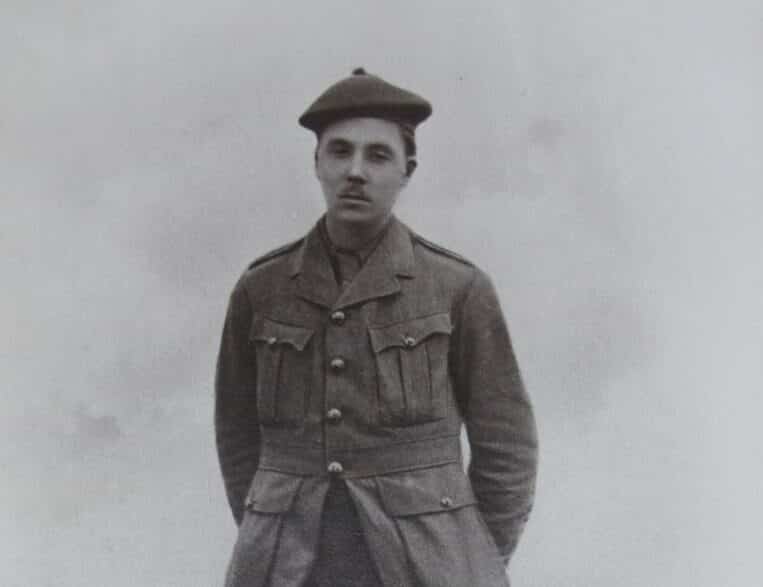March 10 marks the centenary of the first large-scale British offensive of World War One, the first day of the Battle of Neuve Chapelle. The attack opened with an artillery bombardment, the heaviest in terms of weight of shell per yard until 1917. In the four-day battle the British lost 544 officers and 11,108 other ranks. Two of the officers who fell on the first day were Old Cranleighans.
Basil Thomas Holland (2 North 1907), who was training to be a solicitor after completing a law degree at London University, joined the Artists’ Corp in late 1913 and was mobilised on the outbreak of war, arriving in France in November 1914. In response to an appeal for volunteers to take commissions, Holland volunteered and in January was gazetted as a 2nd Lieutenant to the Meerut Division of the Black Watch, a crack regiment that had been abroad since the Boer War. It was while leading a small group of men towards the German lines that he was shot and killed. He was 23.
Fritz Portmore Crawhall (House 1904) was, with his brother, only at Cranleigh briefly before moving to Winchester College. At the outbreak of war he was at camp on Salisbury Plain with the Winchester Officers’ Training Corp along with the Cranleigh OTC. He received his commission in the 6th King’s Royal Rifle Corp on August 15, 1914, arriving in France on January 8, 1915. He was officially reported as missing after the first day of battle and his body never recovered but his captain later reported seeing him fall in a German trench. He was 19. His name was not included on either of the Cranleigh memorials.
In the first seven months of the war five OCs had died. In the two months after Holland and Crawhall fell, another 11 were killed, including the youngest OC to die in the war, 17-year-old Midshipman Ivon Fellowes (2 North 1910), the youngest son of Rear Admiral Sir Thomas Fellowes, who drowned when his ship, HMS Irresistible, struck a mine and sank in the Dardanelles.
Martin Williamson, Cranleigh School Archivist
Back to all news












